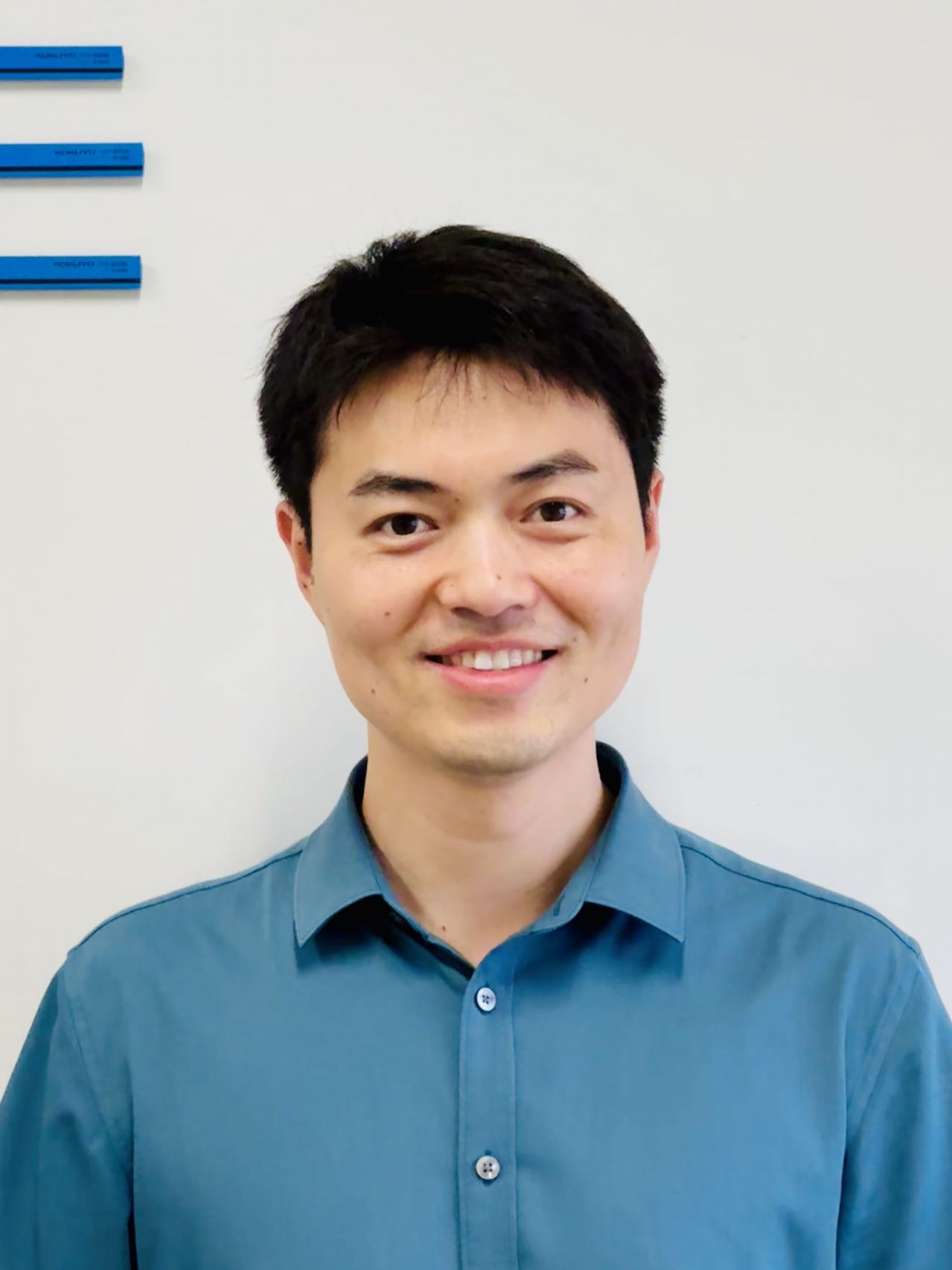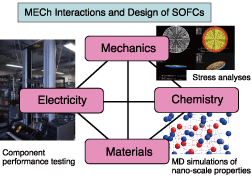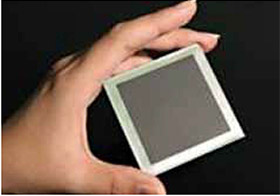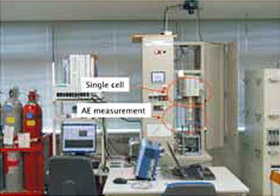組織・研究室
先進機械材料科学研究部門
先進機械材料科学研究分野王研究室
材料の破壊プロセスを最先端の顕微解析技術によって機械論的に解明・可視化する研究
Mechanistic Elucidation and Visualization of Material Fracture Processes Using State-of-the-Art Microscopic Analysis Techniques
脱炭素社会における様々な機械材料の経年劣化に対する理解を深めるために、当研究室では最先端のナノ解析技術を活用し、過酷環境下における構造特性をマルチスケールで探求する。最先端のその場観察および試験手法を駆使し、材料破壊プロセスを機械論的に解明・可視化することで、現行の最先端技術を超える研究を目指す。
To deepen our understanding of the long-term degradation of various mechanical materials in a decarbonized society, our laboratory utilizes state-of-the-art nanoscale analysis techniques to investigate structural characteristics under high-temperature environments across multiple scales. By employing advanced in-situ observation and testing methods, we aim to mechanistically elucidate and visualize material fracture processes, striving to achieve research that surpasses the current state-of-the-art technologies.
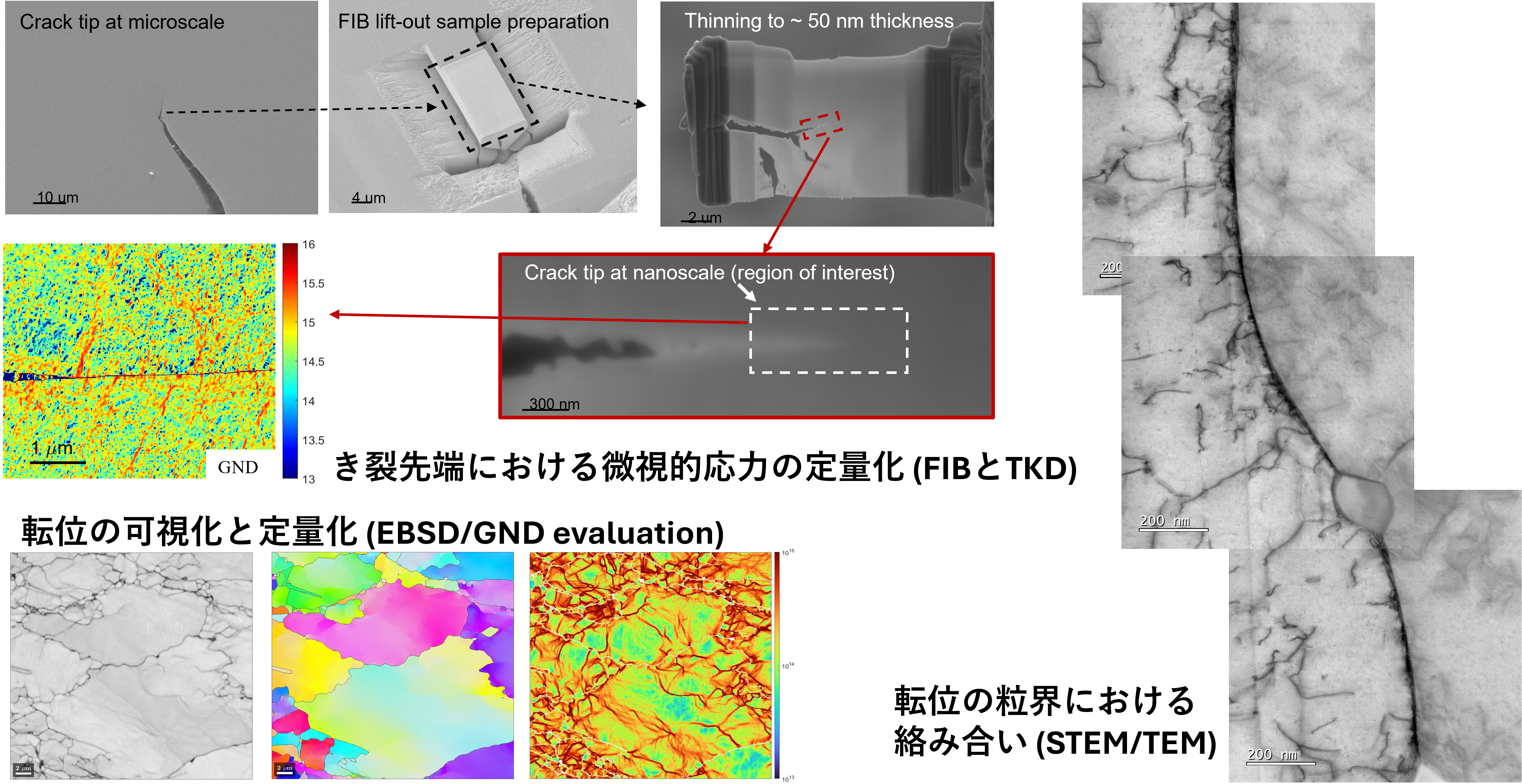
過酷環境下における構造材料と水素の機械的破壊メカニズム評価
Evaluation of Degradation Mechanisms of High-Temperature Alloys and Hydrogen Under Extreme Environments
次世代の水素エネルギー社会の実現に向けて、本研究室では、高温・高圧といった過酷環境下におけるその場計測技術の開発に取り組んでいます。併せて、水素と構造材料の過酷環境下での力学的・化学的挙動を系統的に解明しています。さらに、最先端の構造解析・物性評価技術を融合させることで、水素と材料とのマルチスケールでの相互作用を深層的に理解し、将来の水素エネルギー利用に資する科学的基盤の構築を目指しています。
To realize a next-generation hydrogen energy society, our laboratory is developing advanced in-situ measurement techniques for extreme environments such as high temperature and high pressure. In parallel, we are systematically elucidating the mechanical and chemical behavior of hydrogen and metallic materials under such extreme conditions. By integrating state-of-the-art structural analysis and property evaluation techniques, we aim to achieve a deep, multiscale understanding of hydrogen-material interactions and to establish a scientific foundation that supports future hydrogen energy applications.
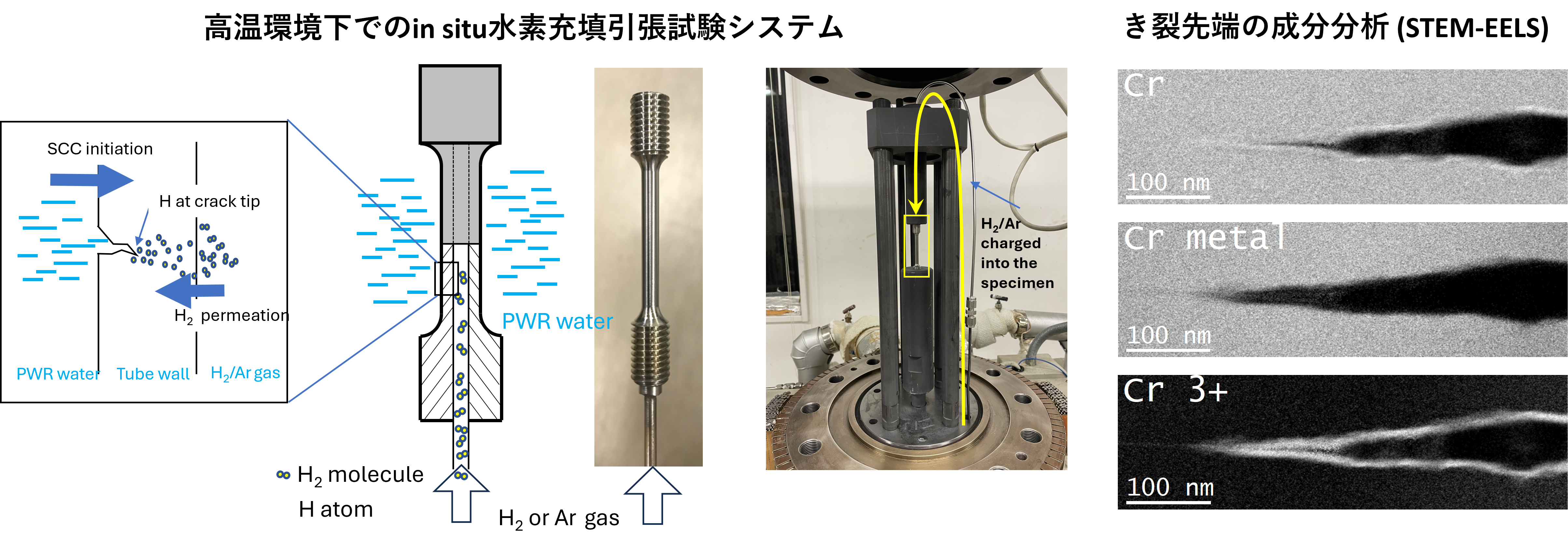
耐食合金開発に関する第一原理計算
First-Principles Calculations for the Development of Corrosion-Resistant High-Temperature Alloys
機構解明に基づく合金開発は、次世代のエンジニアリング材料を創出するための重要な手段です。本研究では、第一原理計算を用いて、新規合金組成の耐酸化性および水素脆化抵抗性を評価します。東北大学がMASAMUNE-弐次世代スーパーコンピュータの計算資源を活用し、各種合金元素が材料の本質的特性に及ぼす影響をミクロなスケールで詳細に解明します。さらに、微細構造解析との連携により、実験と計算を相互補完的に活用し、次世代の構造材料の開発を推進します。
Mechanism-based alloy design is a key approach for developing next-generation engineering materials. In this research, first-principles calculations are employed to evaluate the oxidation resistance and hydrogen embrittlement resistance of novel alloy compositions. Utilizing the computational resources of Tohoku University’s next-generation supercomputer MASAMUNE-2, we aim to elucidate, at the microscopic scale, how various alloying elements influence the fundamental properties of materials. By integrating these computational insights with advanced microstructural analysis, we promote the complementary use of experiments and simulations to accelerate the development of next-generation high-temperature alloys.
Jobs and Perspective students
We are seeking self-motivated master/PhD students and postdoctoral researchers with a strong passion for MechanoMaterial Science. If interested, please send your application along with your CV to wang.zihao.a1[]mso.tohoku.ac.jp. *replace [] with @.

